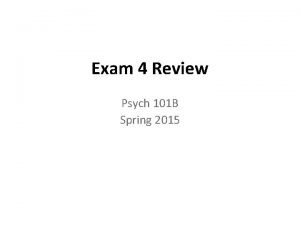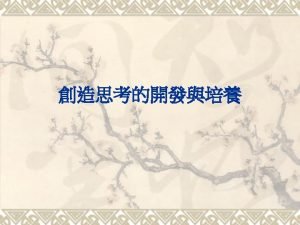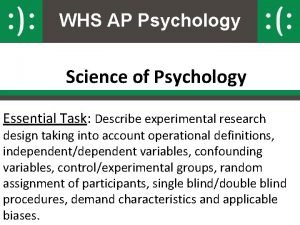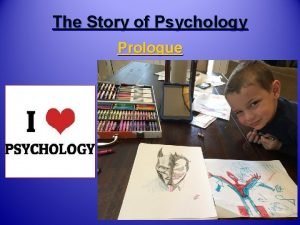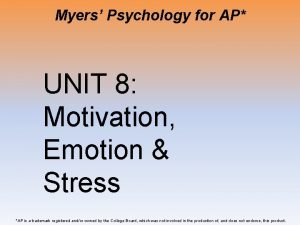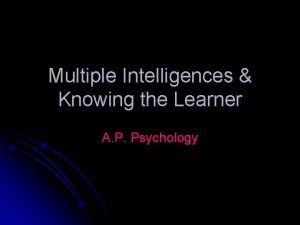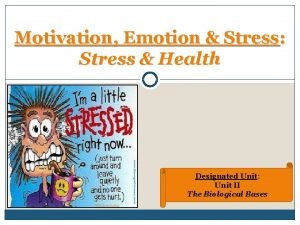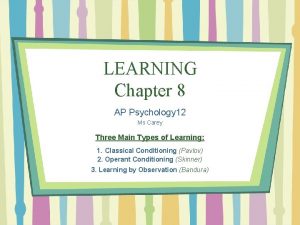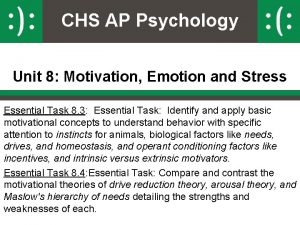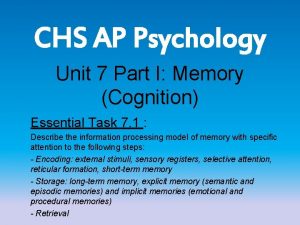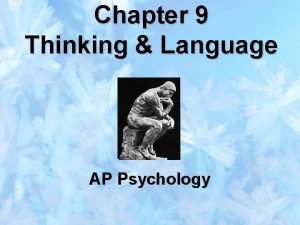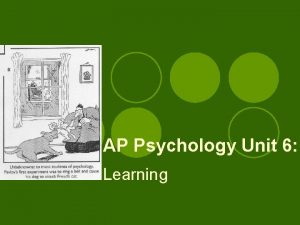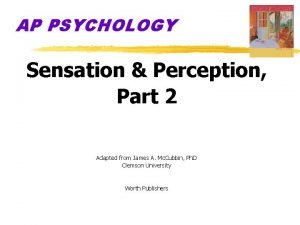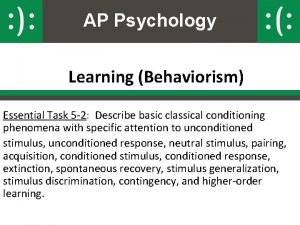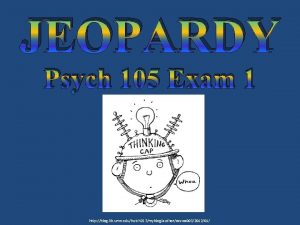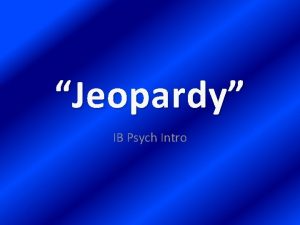JEOPARDY Psych 105 Exam 1 Why Psych 105



























- Slides: 27

JEOPARDY Psych 105 Exam 1

Why Psych 105? Do you mind? Studying Human Nature Misconceptions Contributions To Modern Psychology 100 100 100 200 200 200 300 300 300 400 400 400 500 500 500

Why Psych 105? 100 Are misconceptions about Psychology new? No! They have been a concern since the first meeting of the APA (American Psychological Association)

Why Psych 105? 200 List 2 reasons why people fear what psychologists could reveal. Psychologists could… …uncover things people don’t want to know …promote unwanted changes …demystify mysteries (love, ESP) …make recommendations that conflict with beliefs

Why Psych 105? 300 What is the Dr. Wonderful stereotype? A stereotype in which a psychologist is portrayed as caring and competent, but with endless time for patients and the ability to cure anything by uncovering a single causal event.

Why Psych 105? 400 What is the Dr. Dippy stereotype? A stereotype in which a psychologist is portrayed as crazier than his patients.

Why Psych 105? 500 Do academic psychologists make serious efforts to educate the public about scientific psychology? Why or why not? No. Academia does not reward psychologists for educating the public about scientific psychology. Instead, they are rewarded for research, teaching, and service (to the college/university).

Do You Mind? 100 The mind-body debate asks two important questions. What are they? Why are they important? 1) What is the mind? 2) How do the mind and body interact? These questions drove, and continue to drive, the development of Psychology.

Do You Mind? 200 How did early religion view the mind and body? Mind = soul/spirit/eternal identity Body = vessel for the soul/spirit

Do You Mind? 300 What is the significance of The Doctrine of Double Truths? According to the Doctrine of Double Truths, faith and reason are separate ways of knowing. So, something can be true from one point-of-view, but not the other, and reason can be debated without violating one’s faith.

Do You Mind? 400 Generally, early philosophers focused on two questions about the mind. What were they? 1) What are the contents of the mind? 2) What are the functions of the mind?

Do You Mind? 500 Are we natural dualists? Yes! Like Decartes, many people believe the mind and brain (body) are separate, but interact.

Studying Human Nature 100 What are the four early models of human nature? Who is associated with each one? Hobbes: Biological Instinct Locke: Blank Slate Rousseau: Noble Savage Descartes: Ghost in the Machine

Studying Human Nature 200 Which view focuses on the innate drive to find meaning in our experiences and the importance of the self-concept? The Humanistic View

Studying Human Nature 300 What is the current/dominant view in Psychology today? Cognitive and Affective Neuroscience

Studying Human Nature 400 We view the mind as an “Active Ghost. ” We believe that the primary focus should be on how the mind constructs reality. Who are we? We are Gestaltists.

Studying Human Nature 500 Do Humanists believe in an unconscious mind? Do Behaviorists? No and no.

Misconceptions 100 Are psychological disorders portrayed accurately in movies? Often, they are not.

Misconceptions 200 Are misconceptions about Psychology pervasive? Yes! Lots of people, including smart people and children, misunderstand Psychology.

Misconceptions 300 People often mistake psychology for self-help which includes a step-bystep recipe for solving problems, or _____ knowledge. Recipe

Misconceptions 400 How do people view psychology careers? Unscientific Involving work with abnormal phenomena

Misconceptions 500 When discussed in the media, natural scientists are more likely to be called ___ and social sciences are more likely to be called ___. Natural scientists are more likely to be called scientists Social scientists more likely to be called authors, writers (Cialdini, 1997)

Contributions 100 What were the contributions of early religion to modern Psychology? Viewed mind as different from the body Viewed mind as source of identity/personality Began belief that mentally ill need care Supported the idea that thought can come from the body and affect behavior Supported the idea that there are different kinds of thought

Contributions 200 What were the contributions of early Philosophy to modern Psychology? Began to ask questions about the contents/functions of the mind Emphasized the need for critical thinking and empiricism Noted role of body (biology) in madness Planted seeds of scientific method (Aristotle) Raised questions about the non-human mind/body

Contributions 300 According to our class discussion, who brought focus to studying the personality of ‘normal’ people? Both Hippocrates and Gall

Contributions 400 I believed that thinking happened in brain and that health required a balance between warm/cold, moist/dry, and bitter/sweet. I promoted naturalistic medicine and helped rid medicine of superstition and magical thinking. Who am I? I am Alcaemon of Croton.

Contributions 500 Who was Philippe Pinel and how did he contribute to the treatment for mentally ill? Philippe Pinel was a doctor who provided cleaner and better conditions for his patients. His improvements contributed to the longevity of his patients’ lives.
 Psych 105
Psych 105 Why why why why
Why why why why Psych 101 exam 4
Psych 101 exam 4 Dont ask
Dont ask Ap psych unit 12
Ap psych unit 12 What is a met call
What is a met call William james known for
William james known for Dispositional attribution ap psychology
Dispositional attribution ap psychology Examples of altruism
Examples of altruism Clep ucf
Clep ucf Transference in psychology
Transference in psychology Myers ap psychology unit 8
Myers ap psychology unit 8 Howard gardner ap psychology
Howard gardner ap psychology Lazarus ap psych
Lazarus ap psych Ms carey ap psych
Ms carey ap psych Jmu psych checklist
Jmu psych checklist Sodas frq
Sodas frq Near-death experiences are ap psych
Near-death experiences are ap psych Homeostasis ap psychology
Homeostasis ap psychology Unit 7 ap psych
Unit 7 ap psych Benjamin lee whorf ap psychology
Benjamin lee whorf ap psychology Alfred binet psychology definition
Alfred binet psychology definition Contrapreparedness definition
Contrapreparedness definition Ap psych sensation and perception
Ap psych sensation and perception Higher order conditioning ap psychology definition
Higher order conditioning ap psychology definition Flat affect ap psych
Flat affect ap psych Habituation psych def
Habituation psych def Ap psych unit 9
Ap psych unit 9


